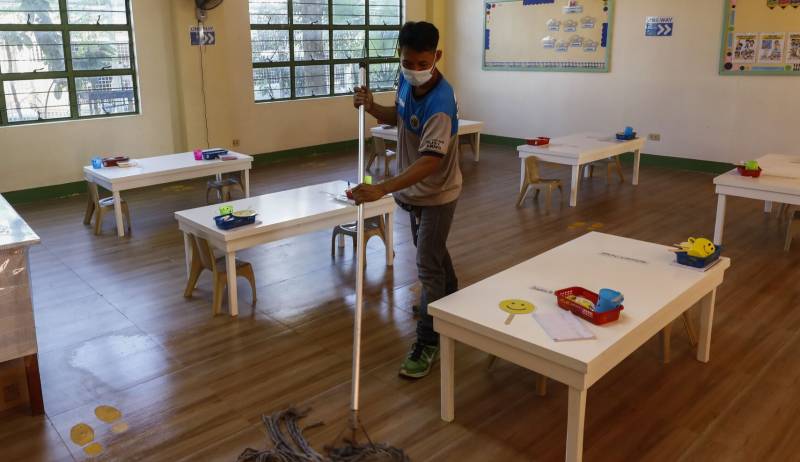Schools in Philippines capital stop classes as Omicron cases surge

Stay tuned with 24 News HD Android App

Schools in the Philippine capital Manila were ordered Friday to suspend online classes for a week, as an Omicron-driven record surge in infections ravages the metropolis of 13 million.
Covid-19 is ripping through the national capital region and surrounding provinces, causing widespread disruption to businesses, services and healthcare providers.
The order for schools in the capital to suspend online lessons until January 22 was to "ease the health burden" for teachers and students, the regional Department of Education said in a memorandum.
Thousands of teachers and students have been infected with Covid-19, according to the Alliance of Concerned Teachers, which has welcomed the "health break".
In an apparent effort to limit the havoc caused by Omicron and get people back to work faster, the government has also shortened the isolation period for people with mild symptoms of the disease from 10 to seven days.
The move to pause lessons comes days after the national Department of Education gave schools across the archipelago the option to suspend classes for two weeks this month as Omicron whips across the nation.
Only around half of the Philippine population is fully vaccinated.
While nearly every country in the world has partially or fully reopened schools for face-to-face lessons, the Philippines has kept them largely closed since March 2020.
A pilot return of some schools to in-person lessons in November was suspended in December as infections rose.
The number of new cases hit a record 37,207 on Friday, with more than three million people in the country infected since the start of the pandemic.
But a lack of testing and the exclusion of antigen results from the tally means the actual figure is likely much higher.
To revive the battered economy, the government loosened lockdowns in October last year, after coronavirus infections driven by the Delta variant peaked.
New infection numbers dwindled to a few hundred per day just before Christmas, but ramped up again as people gathered over the holidays.
